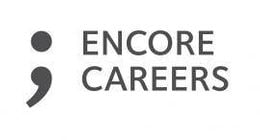A 2-Year Degree Can Fast-Track a New Job
Some community college grads make more than their 4-year counterparts
A report entitled Graduated Success shows how one- and two-year community college credentials can, in many cases, deliver graduates higher salaries than four-year degrees.
That's good news for older Americans looking for employment, including millions who want purpose-filled work in the second half of life.
The new report by Demos, a nonpartisan public policy research and advocacy organization, found that, eight years after graduating from high schools, 27 percent of those holding a community college certificate as their highest degree earn a median annual salary higher than someone holding a bachelor's degree. It found that 31 percent of associate degree holders earn more than someone holding a bachelor's degree.
"We found widespread evidence that community colleges and technical degree programs, which offer specialized training for a variety of fields, are vital to a 'good jobs' economy recovery," said Viany Orozco, a policy analyst at Demos who co-authored the report.
The report also found:
- Average and median salaries earned by those with community college certificates in engineering and health care are close to what bachelor's degree holders in the social or natural sciences earn, and are actually more than what someone holding a bachelor's degree in education earns.
- Students who are awarded certificates earn median annual salaries that are 27 percent greater than those who leave school with no post-secondary awards.
Unfortunately, the report also found that 38 percent of those who enroll in occupational certification programs and 58 percent of those enrolled in occupational associate degree programs fail to earn a credential of any type within six years. Two reasons, according to Orozco, are that many students are forced to work full time or part time to pay their expenses and quite a few lack the academic preparedness necessary to succeed. Those barriers appear to be less applicable to experienced workers attending community college to prepare for encore careers.
This article was originally published by Encore.org on Feb 16, 2010.


